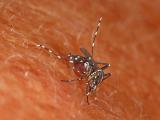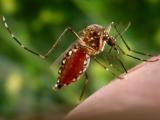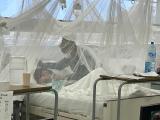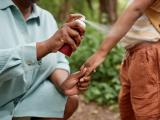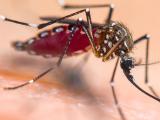Dec 7, 2012
Brazil reports its first BSE case, in cow that died in 2010
Brazil has reported its first case of bovine spongiform encephalopathy (BSE, or mad cow disease), but officials said that the disease was not what killed the cow and the case may have been atypical. In a report filed with the World Organization for Animal Health (OIE), Brazilian officials said the 13-year-old cow had limb stiffness and was unable to stand before its death in December 2010 in Parana state. An initial test for rabies was negative, and a subsequent histopathologic test for BSE yielded negative results in April 2011. Further testing was delayed when an incident in a BSE-accredited lab led to an overload of samples, with the result that the case was assigned a low priority because of the cow's age and condition. But on Jun 15, 2012, an immunohistochemical test for BSE was positive. A sample was then sent to the OIE's BSE reference lab in the United Kingdom, where another immunohistochemical test was positive yesterday. "The epidemiological investigation shows that the animal's death was not caused by BSE and suggests that it may be an atypical case of the disease occurring in the oldest animals," the report states. "Information collected during the epidemiological investigation shows also that the animal was reared in an extensive system on grazing." In a number of other cases, BSE has been linked to contaminated feed. In an added note, OIE officials said Brazil "is still recognized by the OIE as having a negligible BSE risk in accordance with Chapter 11.5. of the OIE Terrestrial Animal Health Code."
Dec 7 OIE report
IDSA releases first guide for treating prosthetic joint infections
The Infectious Diseases Society of America (IDSA) released its first guidelines on treating prosthetic joint infections, a condition that occurs in 20,000 (2%) of the 1 million joint replacements every year. The guidelines, in Clinical Infectious Diseases, call for multispecialty teams, including orthopedists, infectious disease specialists, and others based on a patient's individual needs, to battle the infections. Douglas Osmon, MD, a member of the guidelines panel and infectious disease specialist at the Mayo Clinic in Rochester, Minn., said in the statement, "The number of people suffering from prosthetic joint infections will continue to grow because, although we are getting better at preventing infection, that is countered by the increase in older and sicker people having joint replacement." The recommendations address individual circumstances, along with criteria to gauge when patients need more aggressive treatment such as prosthesis replacement, removal, or limb amputation. They describe when to suspect a prosthetic joint infection and steps to take after an infection is confirmed.
Dec 6 Clin Infect Dis abstract
Madeira dengue cases top 1,800
The resort island of Madeira, Portugal, reported 1,891 cases of dengue fever through Nov 25, an increase of more than 500 cases over the previous 2 weeks, according to a report yesterday in Eurosurveillance. Of the 1,891 case-patients, 59% are female and the median age is 39, with the hardest-hit age-group being those 25 to 64 years old. A total of 996 cases have been lab confirmed since the outbreak was first identified on Oct 3, and 111 patients have been hospitalized, with most of them experiencing mild symptoms of fever, myalgia, headache, and arthralgia. It is the first dengue fever epidemic in Europe since 1928. Public health efforts have focused on mosquito control—with all departing aircraft undergoing "disinfestation" measures—as well as education efforts.
Dec 6 Eurosurveill report


